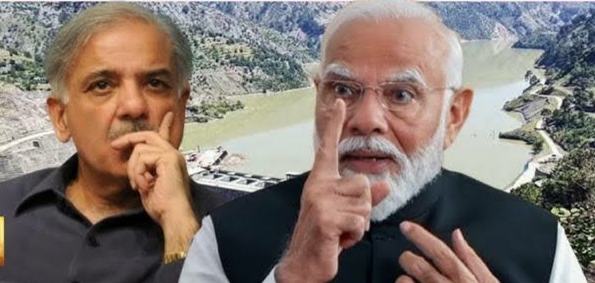Pakistan’s plea to revive Indus Water Treaty firmly rejected

Though a ceasefire plea made by Pakistan got accepted by India, Indian officials have made it clear there will be “no change in stand” regarding the suspension of Indus Water Treaty. Also all other retaliatory measures—including trade and visa restrictions—will remain in force until Pakistan addresses India’s security concerns by totally dismantling the terror ecosystem and handing over the designated terrorists.
India will not to consider Pakistan’s request to reinstate the Indus Waters Treaty (IWT) and is preparing to amend the agreement to secure its share of water, while maintaining compliance with international law. This decision was the first one after the deadly Pahalgam terror attack in April 2025, which killed 26 people. This was attributed to Pakistan-backed terrorists.
India suspension of the IWT for the first time since its inception in 1960, was immediately ratified by the Cabinet Committee on Security.
Government sources emphasise that while India will ensure it does not violate international obligations —specifically, the obligation to provide water to lower riparian regions —it will begin to take its full legal share of water from the Indus river system. The original treaty allocated the eastern rivers (Sutlej, Beas, Ravi) to India and the western rivers (Indus, Jhelum, Chenab) to Pakistan, but Indian officials now describe the 1960 agreement as “very generous” to Pakistan and argue that it was crafted in a spirit of goodwill that has since been undermined by decades of cross-border terrorism.
India’s stance is that the treaty, drafted in the late 1950s, is outdated and requires revision to address contemporary challenges such as climate change, glacier melt, population growth, and clean energy needs. The government contends that Pakistan has consistently obstructed efforts to renegotiate the treaty to reflect these modern realities.
Prime Minister Narendra Modi has reiterated a hard-line position, declaring that “water and blood can’t flow together,” and linking any resumption of the treaty to Pakistan “credibly and irrevocably abjuring” support for cross-border terrorism. India has announced a three-pronged plan—short-term, mid-term, and long-term—to ensure that water from the Indus system is utilized within India and does not reach Pakistan unnecessarily.
Pakistan, in turn, has pleaded with India to reconsider the suspension, warning that a prolonged halt could trigger a water crisis, especially since the Indus basin irrigates about 80% of Pakistan’s agricultural land and supports millions of livelihoods.
Pakistani officials have indicated they may seek international legal recourse, and have warned that any attempt to disrupt water flows could be considered an act of war. Wellas a Sovereign nation, India takes its own decision and regarding war, it remains fully prepared.




